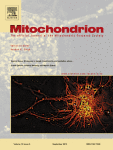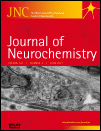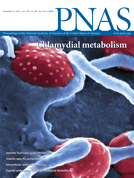 After Tina Wenz was found guilty of scientific misconduct, how long did it take for journals to retract the problematic papers? The answer: Between three and nine months.
After Tina Wenz was found guilty of scientific misconduct, how long did it take for journals to retract the problematic papers? The answer: Between three and nine months.
In September 2016, the University of Cologne found that Wenz had committed scientific misconduct in six papers and requested they all be retracted. From that point on, the retraction clock was ticking.
We’ve explored how long it takes a journal to act over the years, and we’ve found that the time between identifying a problem to retracting the paper can vary — and sometimes last years.
In Wenz’s case, one of the papers—published in Cell Metabolism in 2009—had already been retracted in 2015. Three of the remaining five were retracted in December 2016—a 2008 paper in Cell Metabolism, a 2009 paper in Proceedings of the National Academy of Sciences (PNAS), and a 2009 paper in the Journal of Applied Physiology.
In January 2017, the journal IUBMB Life pulled a 2014 paper flagged in the investigation. And just over nine months after Wenz was found guilty of misconduct, the last paper—published in 2013 in Mitochondrion—has been retracted.
The most recent notice states that the University of Cologne requested the retractions, after determining that the data had been “inappropriately manipulated.”
Here’s the retraction notice in Mitochondrion:
Continue reading The retraction countdown: How quickly do journals pull papers?
 A volunteer researcher at Florida Atlantic University fabricated the results of mouse experiments over a 14-day period in June, 2016, according to a new finding issued by the U.S Office of Research Integrity (ORI).
A volunteer researcher at Florida Atlantic University fabricated the results of mouse experiments over a 14-day period in June, 2016, according to a new finding issued by the U.S Office of Research Integrity (ORI). A patient’s “unusual” brain cyst excited several researchers in China so much they published a paper about it in a major journal. Soon a reader identified a glaring mistake: the authors had described the cause of the cyst incorrectly.
A patient’s “unusual” brain cyst excited several researchers in China so much they published a paper about it in a major journal. Soon a reader identified a glaring mistake: the authors had described the cause of the cyst incorrectly.  After
After 


 A neurochemistry journal has retracted a paper from a group in China over a duplicated image.
A neurochemistry journal has retracted a paper from a group in China over a duplicated image. For the second time, a journal has quickly retracted a study that suggested vaccines raise the risk of autism and other neurodevelopmental disorders.
For the second time, a journal has quickly retracted a study that suggested vaccines raise the risk of autism and other neurodevelopmental disorders. In 2012,
In 2012,  When two surgeons in Greece learned that a patient had developed a rare side effect following weight loss surgery, they were eager to publish the case.
When two surgeons in Greece learned that a patient had developed a rare side effect following weight loss surgery, they were eager to publish the case.